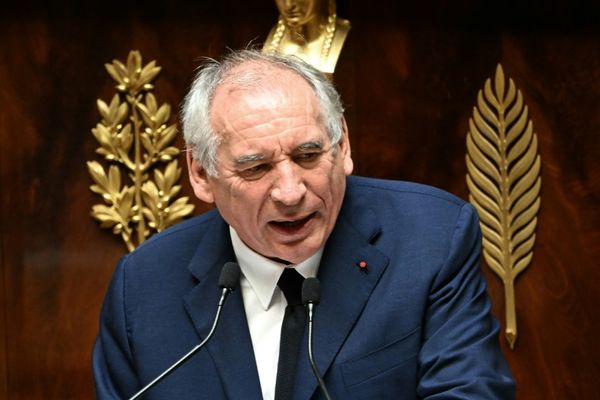
Athar Husain Rizvi, better known as Kaifi Azmi, born 101 years ago on this day wrote his first-ever ghazal at the tender age of eleven. This ghazal went on to become a rage in pre-Partition India and has also been sung by the legendary ghazal singer Begum Akhtar. Here are a few lines:
Itna toh zindagi mein kisi ki khalal padhe
Hansne se ho sukoon na rone se kal padhe
Muddat ke baad usne jo ki lutf ki nigaah
Jee khush toh ho gaya magar aansu nikal padhe
Jis tarah hans raha hoon main pee pee ke ashk-e-gham
Yun doosra hanse toh kaleja nikal padhe
Kaifi Azmi hailed from a family with a literary background and was born with the gift of languages, along with a natural talent for writing. The Progressive Writers’ Movement pioneered by Sajjad Zaheer was an organic draw for Kaifi Sahab. This movement, led by intellectuals, was concerned with issues of social justice, freedom from oppression and freedom of speech. He was guided by the leading progressive writers of the time which then resulted in Kaifi Azmi gaining fame for his verses.
In 1942, having been inspired by Mahatma Gandhi, he abandoned his studies of Persian and Urdu and fully involved himself in the fight for India’s freedom. The movement was influential in shaping Kaifi Azmi’s political fundamentalism.
At the age of 19, he moved to Bombay (now Mumbai) to take care of ‘Qaumi Jung’, an Urdu newspaper published by the Communist party.
Films and lyrics:
Kaifi Azmi or Kaifi Sahab, as he is respectfully known, worked on films like Yahudi ki Beti (1956), Parvin (1957), Miss Punjab Mail (1958), Id ka Chand (1958) as a writer. In Guru Dutt’s all-time classic, Kaagaz Ke Phool, Kaifi Azmi contributed by writing the unforgettable song Waqt Ne Kiya Kya Haseen Sitam Tum Rahe Na Tum Hum Rahe Na Hum which expresses the anguish of two people who have loved and lost each other over a period of time. A few other films Kaifi Azmi wrote lyrics for are Chetan Anand’s Haqeeqat (1964), dubbed India’s greatest war film; Kohra (1964), Anupama (1966), Uski Kahani (1966), Saat Hindustani (1969), Parwana (1971), Bawarchi (1972), Pakeezah (1972), Hanste Zakhm (1973), Arth (1982) and Razia Sultan (1983). He also played a memorable role of Naseem’s grandfather in Naseem (1995).
Kaifi Sahab is also credited with writing the dialogues for Shyam Benegal’s Manthan (1976) for which he won the national award for best dialogue. For a documentary made by M.S. Sathyu on Ghalib, Kaifi Sahab had also got Ustad Amir Khan to sing a ghazal.
Kaifi Azmi has been awarded the Padma Shri (1974); Uttar Pradesh Urdu Academy Award; The Sahitya Akademi Award for his collection, Awara Sajde; Sahitya Akademi fellowship for the entire body of his work (2002); National Award for screenplay and dialogue for MS Sathyu’s ‘Garm Hawa’ (1974); National Award for dialogue of Shyam Benegal’s ‘Manthan’ (1977) amongst countless others.
Kaifi Sahab suffered a brain haemorrhage on February 8, 1973, which had paralysed him. However, he never gave up hope and decided to leave the comforts of life in Bombay and settle in Mijwan, a tiny village in Eastern UP’s Azamgarh where he was born. Mijwan was then untouched by development and didn’t even have a pin code. Today it’s known all over the world due to Kaifi Sahab’s persistent efforts to uplift the village. He then set up an NGO, Mijwan Welfare Society, to aid in women empowerment and focus on the welfare of the girl child.
An annual fashion show is now organised by veteran actress Shabana Azmi which sees Bollywood and fashion industry’s A-listers participate. The fashion show, by and large, focuses towards showcasing the exquisite craft of chikankari.
Books, Theatre and more:
Kaifi Azmi was the subject of a documentary film titled Kaifi Azmi (1979), directed by Raman Kumar. In 1997, he recited his own poems for Kaifiyaat, an audiobook on his collected works. His autobiography is included in a collection of his works, Aaj Ke Prashid Shayar: Kaifi Azmi.
Kaifi Aur Main, a play based on his life, his works and the memoir of his wife and popular thespian, Shaukat Azmi - Yadon Ki Rahguzar (Down Memory Lane), was written and performed by Javed Akhtar and Shabana Azmi, and has been performed in both India and abroad. Waqt Ne Kiya Kya Hasin Sitam, a play directed by Rani Balbir, based on Kaifi Azmi’s life and writings opened to the audience in 2005.
Here are 11 nazms by Kaifi Sahab that will appeal to your pensive mood days and enrich you:
Uth meri jaan mere sath hi chalna hai tujhe
qalb-e-mahaul mein larzan sharar-e-jang hain aaj
hausle waqt ke aur zist ke yak-rang hain aaj
aabginon mein tapan walwala-e-sang hain aaj
husn aur ishq ham-awaz o ham-ahang hain aaj
jis mein jalta hun usi aag mein jalna hai tujhe
-- Aurat

Tum masarrat ka kaho ya ise gham ka rishta
kahte hain pyar ka rishta hai janam ka rishta
-- Koi ye kaise batae

Ye kis tarah yaad aa rahi ho ye khwab kaisa dikha rahi ho
ki jaise sach-much nigah ke samne khadi muskura rahi ho
-- Tasawwur

Ek diya nam hai jis ka ummid
jhilmilata hi chala jata hai
-- Charaghan

Ruh bechain hai ek dil ki aziyyat kya hai
dil hi shoala hai to ye soz-e-mohabbat kya hai
-- Andeshe

Dub ke dil mein kahin
aaj tum kuchh na kaho
aaj main kuchh na kahun
bas yunhi baithe raho
-- Ek lamha!

Roz badhta hoon jahan se aage
phir wahin laut ke aa jaata hoon
-- Daera

Aaj ki raat bahut garam hawa chalti hai
aaj ki raat na footpath pe neend aayegi
sab utho, main bhi uthoon tum bhi utho, tum bhi utho
koi khidki isi deewar mein khul jaayegi
-- Makaan

Qadam aise andaz se uth rahe the
ki aawaz de kar bula legi mujhko
main aahista aahista badhta hi aaya
yahan tak ki us se juda ho gaya main
-- Pashemani

Garm boson se tarasha hua nazuk paikar
jis ki ek aanch se har rooh pighal jaati hai
maine socha hai ki sab sochte honge shayad
pyaas is tarah bhi kya sanche mein dhal jaati hai
-- Nazrana

Yeh rang-e-mai nahin saqi jhalak hai khoon-shuda dil ki
jo ek dhundli si surkHi ankhdiyon mein paayi jaati hai
-- Mahaul








